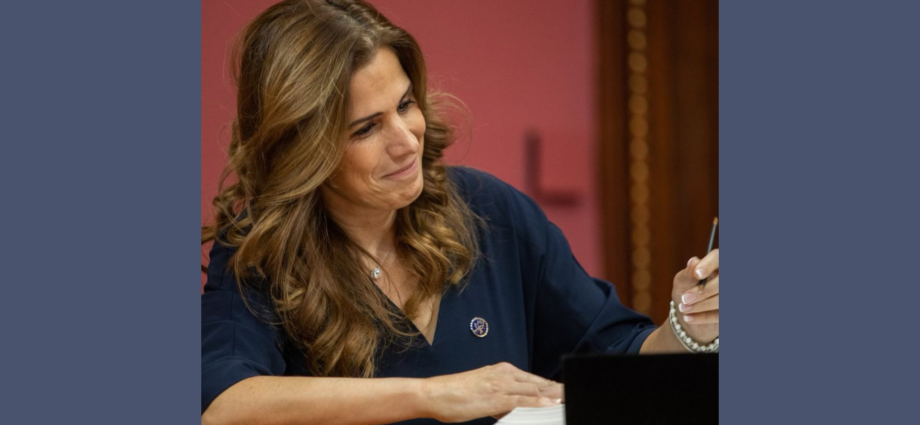
Pascale Déry and the Legault government are betraying the legacy of the Quiet Revolution by interfering with university management.
by Denis Hurtubise. Originally published on Policy Options
February 6, 2024
(Version française disponible ici)
Are Quebec universities still autonomous from political interference? That’s the question raised by recent decisions by Quebec Higher Education Minister Pascale Déry.
Last December, Déry announced that by 2025-2026, McGill, Concordia and Bishop’s universities would be required to have 80 per cent of their students reach an intermediate level of proficiency in the French language. More recently, she refused to ratify the appointment of professor Denise Helly to the board of directors of the Institut national de la recherche scientifique (INRS).
Déry’s gestures, particularly the latest involving the professor, have sent shockwaves through the Quebec academic community. Many see them as an infringement of academic freedom.
It is possible, but still unclear, that academic freedom is at stake in the second situation. It could even be a case of censure by the minister, since her office has admitted that the decision to block the appointment was based on her “reservations about Ms. Helly’s links with the controversial preacher Adil Charkaoui.”
What is clear, however, is that Déry’s recent actions, particularly the language requirement, strike at the very heart of university autonomy and is at odds with a well-established Quebec tradition.
Quebec’s move to force teaching French at McGill and Concordia could have dire consequences
What does “university autonomy” mean?
Like academic freedom, university autonomy is a key element in the Western concept of the university. Autonomy is first and foremost the independence enjoyed by an institution of higher education in relation to other entities that might seek to influence or even control it. In some respects, it is institutional equivalent of academic freedom for professors.
Autonomy is crucial for universities. It gives them the protection and freedom to pursue their mission as they see fit, namely the advancement of knowledge for the good of the community. It also enables them to operate under the supervision of their own governing bodies – boards of governors, senates, or their equivalents – and to do so without external interference, governmental or otherwise.
In the Canadian context, university autonomy and accountability are balanced. Provincial governments authorize universities to operate within their borders, and partially fund their operations. In return, universities are accountable to their respective provincial governments for the quality of their teaching programs.
However, because of their autonomy, universities are not controlled by provincial governments, but by their own governing bodies. It is they who determine the disciplines in which they offer programs, as well as their content. They are also autonomous in identifying their institutional research priorities.
Of course, a provincial government may decide not to fund a program of study. However, it will not interfere with a university’s program planning or design. Similarly, the government will avoid interfering in the management of universities, including the appointment of their managers, even though it is the government’s responsibility to ratify such appointments.
University autonomy in Quebec
Sixty years ago, the Royal Commission on Education in the Province of Quebec tabled its report (the Parent report), which has had a considerable impact on the Quebec university system. Article 332 of the report, which deals with the autonomy of the future Université du Québec, states that the university “shall enjoy, before the minister of Education, the freedom granted to all university institutions by the Act instituting the Ministère de l’Éducation and the Conseil supérieur de l’éducation.”
The Quebec government of the time even went further than the Parent report, leaving aside the proposed creation of more interventionist bodies, including an office whose mandate would have been to standardize university programs. In short, the Quebec government respected the autonomy of universities, which it had enshrined as early as the 1960s.
By requiring Quebec’s English-speaking universities to teach an intermediate level of French to 80 per cent of their students, Déry is dictating part of their programs. What’s more, by blocking the appointment of a member of the INRS board of directors, the minister is giving the impression that she believes she is entitled to interfere in the management of universities.
Déry’s recent actions place the Quebec government in a curious position. By flouting the spirit of the Parent report, it is betraying an important legacy of the Quiet Revolution, which it often invokes to justify some policies.
Subscribe to our newsletter.
This article first appeared on Policy Options and is republished here under a Creative Commons license.


